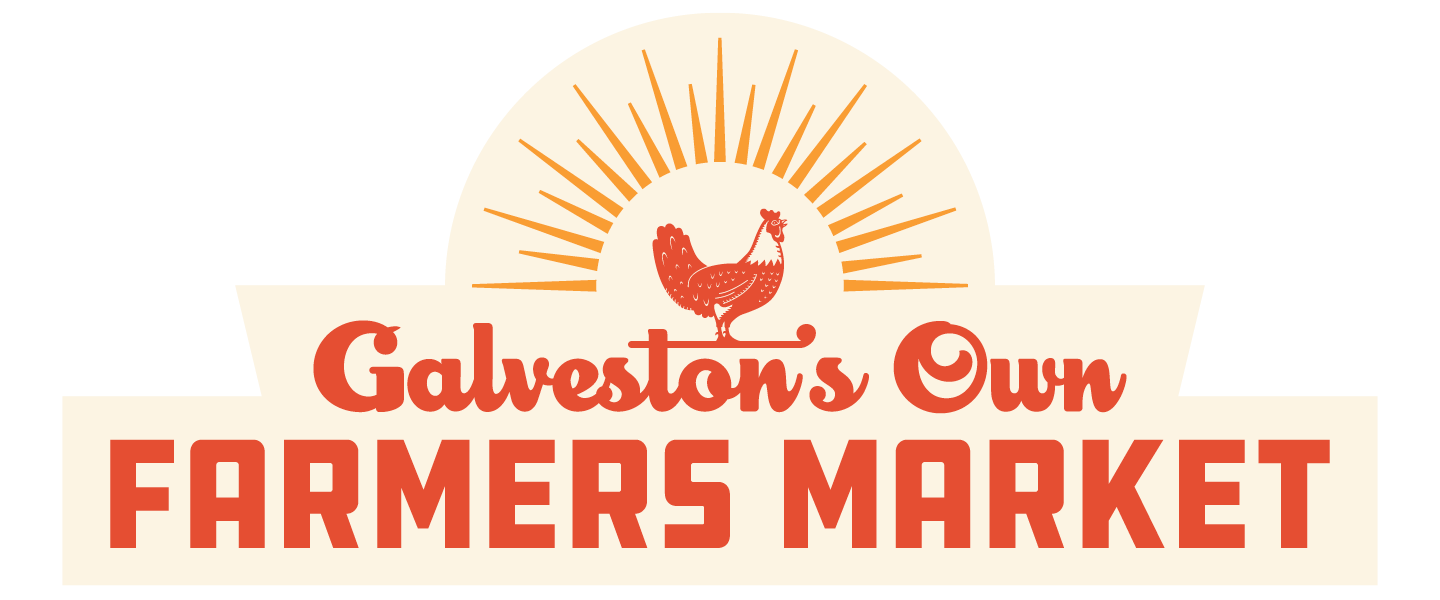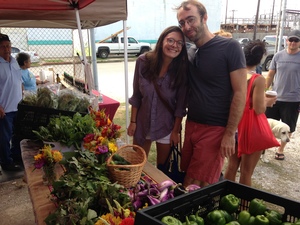WHAT IS 'LOCAL FOOD'?
The food we eat reaches us in 2 main ways:
the 'global industrial' food system and the 'local food' system.
The 'global industrial' food system entails hundreds of multi-layered paths that criss-cross the world, including the farm (or many farms) that grew the crop, the factories where the crop was processed/slaughtered/packaged and the miles the end-product traveled to reach your grocery store and then your table.
The 'local food' system means buying a food grown or made close to your home, or at least within your regional area.
For fruits and vegetables, this means supporting a nearby farm that controlled every aspect of growing the crop.
For other foods, this means using local ingredients to create a new product ( breads, jams, pastas, olive oils,etc.). Of course, some products can't be made using only local ingredients because of regional obstacles (e.g. flour to make bread doesn't grow in coastal Texas), but if the producer making the product is locally-based, that is still understood to be a local food.
In general, the local food system is associated with sustainable & organic agriculture because of its connection to smaller family farms who typically use these types of methods.
However, 'local food' doesn't necessarily mean the food was grown organically or sustainably. At GOFM, we firmly support farms using organic methods, and work to bring only these types of operations to market.
WHY SHOULD YOU BUY LOCAL?
1. Support the local economy
Local food puts money back into the community.
Local food producers directly benefit the businesses around them:
Farmers' markets draw customers to nearby storefronts and restaurants on marketdays, providing new connections between businesses & consumers
Farms source supplies,machinery,soil amendments and labor locally
Food grown locally, processed locally and distributed locally (e.g. to local restaurants) generates jobs and subsequently helps stimulate local economies
2. Sustainability
Local food supports a clean environment.
Global industrial food systems negatively impact our planet and economy by polluting our water resources, air and soil, inducing erosion and eliminating local wildlife through pesticide/synthetic fertilizer use.
Small-scale family farms actively work to improve their land through beneficial, organic growing practices. These smaller local farms act as stewards, implementing sustainable farming methods that support healthy ecosystems ( e.g. zero or minimized pesticide use, composting, rotational growing, minimal travel from farm to market, minimal packaging of products, and creation of healthy native habitat for local wildlife).
3. Food Safety and Nutrition
Local food tastes better, is better for you & GMO-free.
When food is grown in your community, it will reach you within a day or two of being picked, meaning peak flavor and nutritional value. Peaches will be sweeter, lettuce will be crunchier and last for weeks in the refrigerator, and meats, cheeses, breads and eggs will be fresher and more flavorful than anything found in the grocery store.
GMO seeds are currently only produced for large-scale industrial factory farms. Small local farms don't have access to genetically modified seeds, and most wouldn't use them even if they could.
The risk of food-borne illness decreases dramatically when buying local foods. Large-scale contamination occurs most often within a large industrial system with many, many moving parts. Small-scale operations like family farms, ranches and other food-producers have more control over a smaller amount of product which better ensures maximum safety. Furthermore, the livelihood of small farms relies on maintaining customers who trust their methods, making the smaller farms more accountable, transparent and forthcoming about their operations.
4. Building Community
Local food makes our communities better.
Local farmers' markets provide vibrant spaces for families and individuals to engage with one another. Neighbors get to know each other another along with their farmer, baker and cheese-maker.
When you buy food from a local maker or grower, you re-establish a time-honored connection between the provider and the eater. Knowing your farmers means learning about the seasons, the weather and the wonder that is growing food. It is the opportunity to teach children that food comes not from a box but soil, water, sun and lots of hard work.
Shopping local brings together folks who care about truly nourishing people in the community; vendors and their customers enjoy relationships built on trust and understanding, relying on one another to keep their families healthy and thriving.
Local farmers and producers want you to ask questions and visit; they're passionate about providing the highest-quality product, wanting you to love it as much as they do.
When you buy local, you are given the luxury of knowing your grower or maker, visiting them, asking how their product is made & seeing for yourself how your food comes to be.
Supporting local food helps ensure there will be farms in your community tomorrow, preserving natural landscapes and providing abundant, wholesome and delicious food for future generations.
“Holy Guacamole! Love this jewel in Galveston.”



